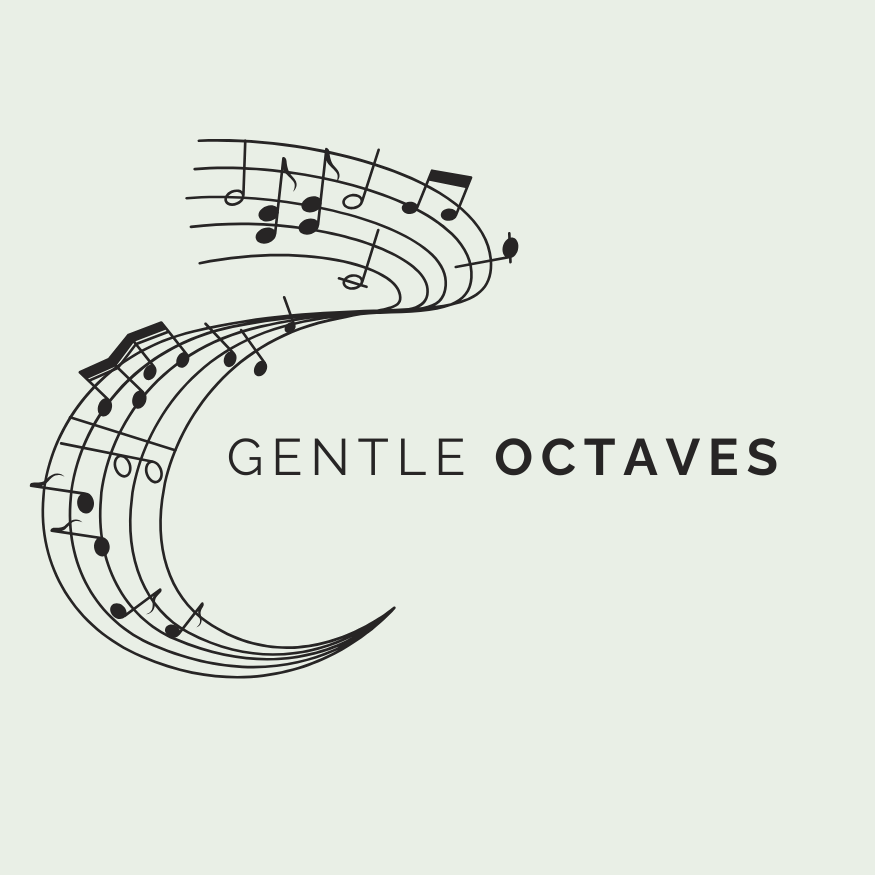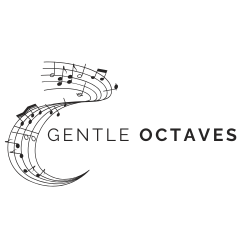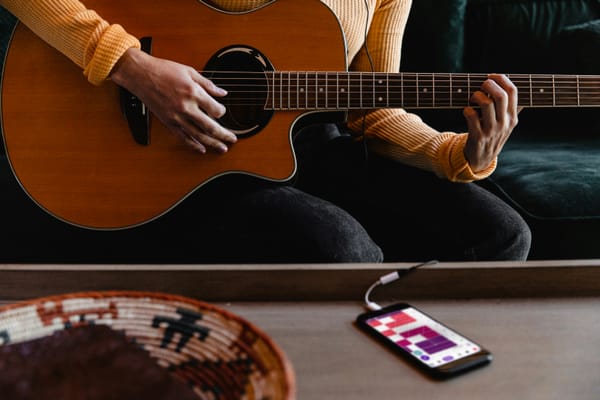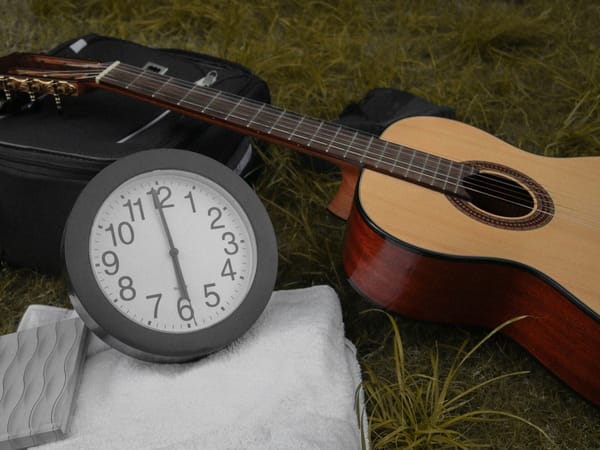Hand Pain While Playing Guitar? Try This 5-Minute Fix That Actually Works
If your fingers feel stiff or sore halfway through practice, you're not alone. Many guitarists unknowingly strain their hands before they even play a single chord. The good news? Relief might only be five minutes away.
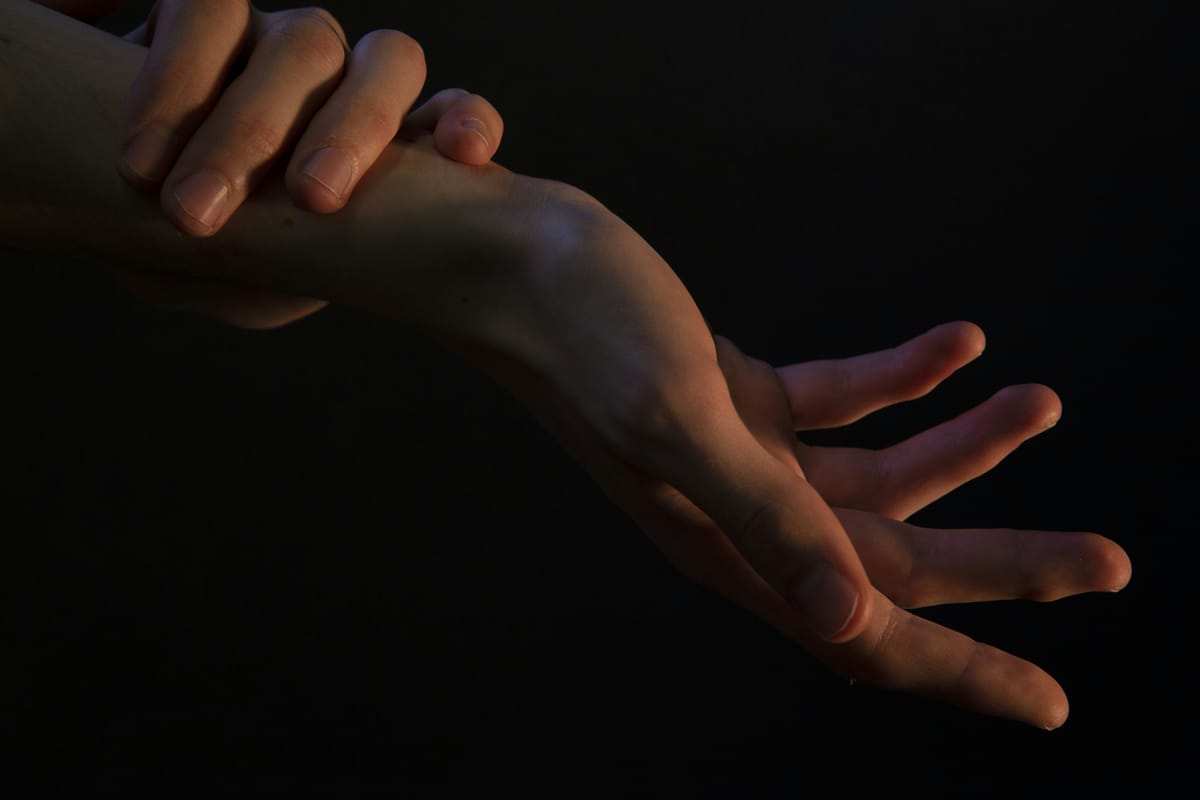
Your hands are your instruments too: treat them like VIPs, not afterthoughts.
If your fingers feel stiff or sore halfway through practice, you're not alone. Many guitarists unknowingly strain their hands before they even play a single chord.
The good news? Relief might only be five minutes away.
Ignoring hand tension can lead to tendonitis, performance pain, or long-term damage but it's preventable with the right knowledge and approach.
Its never good to ignore pain and if your lucky enough to not have any pain from your playing then your in a good position to develop some habits to keep it that way!
The Silent Saboteur: Micro-Tension
You might not feel it at first. But tiny, unnoticed tension in your wrists and fingers builds up like rust on strings.
That micro-tension is the enemy of smooth fretting, clean strumming, and fluid creativity.
Left unchecked, it turns into further problems down the line: tendonitis, nerve compression, or chronic stiffness.
Good news? You can intercept it in just five minutes before it ruins your session.
Warm Hands = Fluid Playing
You wouldn’t run a marathon without stretching your calves.
So why play guitar without prepping the muscles that control every note?
A quick warm-up routine increases blood flow, activates tendons, and primes your nervous system for coordination. It also gives your brain time to slow down and settle into flow.
It’s not fluff. It’s performance insurance.
The 5-Minute Pre-Play Ritual (That Your Hands Will Thank You For)
Here’s the exact sequence I use: backed by years as both a Manual Osteopath and Musician:
- Wrist Circles (1 min):
Gentle fists, rotate both directions, fingers wide at the end. - Prayer Stretch (30 sec):
Palms together, drop slowly to feel forearm stretch. - Reverse Prayer + Wrist Extensor Stretch (1 min):
- Back of hands together
- Then, arm extended + pull fingers back gently
- Finger Tendon Glides (1 min):
Run through:- Straight hand
- Hook fist
- Full fist
- Tabletop
- Thumb Stretch (30 sec/side):
Gently pull thumb back and down. - Shake & Flick (30 sec):
Flick water off your fingers — it’s awkward but golden.
Want this FREE guide with images showing the exact stretch I use?
Download below and your hands will thank you.
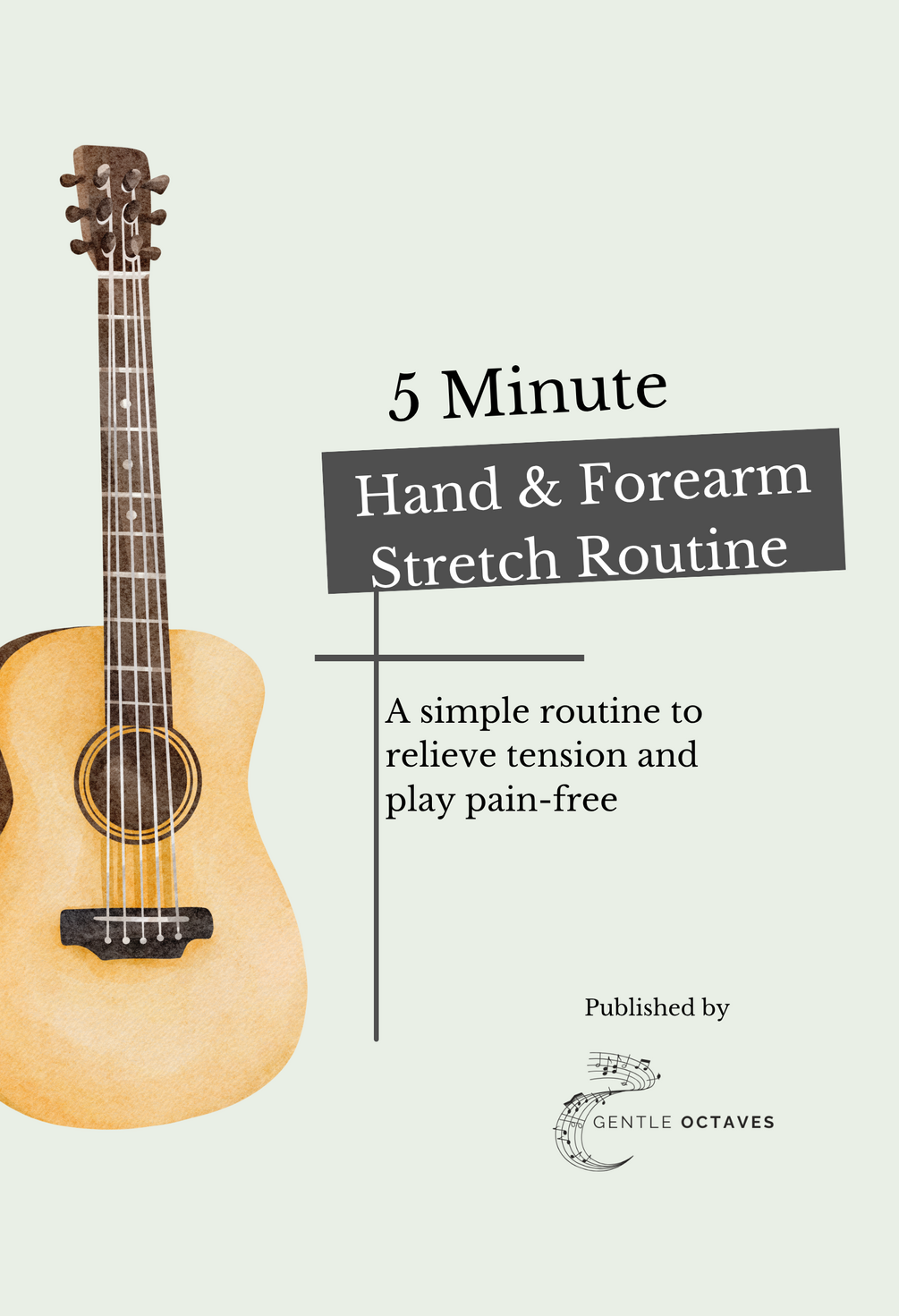
Your Hands Are Your Craft
Most people treat their instruments better than their hands.
But if your fingers are stiff, your music suffers.
If your wrists are inflamed, your rhythm falters.
If you’re in pain, you won’t play at all.
Musicians don’t need longer practice. We need smarter prep.
Pain isn’t a rite of passage. It’s a warning and it’s reversible.
You don’t need stronger hands to play without pain: you need gentler hands that know when to rest.
We protect our instruments from the weather why not protect the hands that play them?
Let’s Talk About It
- Do you have a warm-up ritual before you play? Or do you dive right in?
- What’s your most common tension or pain spot while playing?
- Ever had a song derailed by hand cramps? You’re not alone. Share it in the comments.
I work with adults over 40 navigating pain and rediscovery in music. If that’s you say hi.
Gentle Octaves is a music coaching space for adults over 40 returning to creativity or just starting out. With a background in Psychology, Osteopathy, and Corrective Exercise, we help people overcome pain, anxiety, and self-doubt through music. Learn more or book a session here.
Want more support?
Check out our adaptive music coaching and free resources at gentleoctaves.com
Follow us on Instagram @gentleoctaves for more bite-sized musician care tips.
DM me if you’re tired of pain holding you back and let’s keep you playing.
For the curious minded
Ackermann, B., & Driscoll, T. (2010). Medical Problems of Performing Artists, 25(3), 95–101.
Chan, C., Driscoll, T., & Ackermann, B. (2000). Medical Problems of Performing Artists, 15(3), 121–127.
Werner, R. A., et al. (2001). Journal of Occupational Rehabilitation, 11(1), 1–13.
Zaza, C. (1998). Canadian Medical Association Journal, 158(8), 1019–1025.
